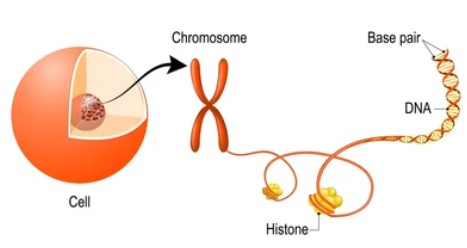
- Home
- PTMs Proteomics
- Histone PTM Analysis
- Histone Isolation and Enrichment Service
In the last decade, mass spectrometry (MS) has become the method of choice to profile histone PTMs in a systematic manner. Indeed, MS analysis does not require any a priori knowledge of the modification site, offers a comprehensive view of multiple histone PTMs and their combinations, and provides accurate quantification of even mild relative changes among samples. To meet the downstream applications such as MS-based histone PTM assays, Creative Proteomics has adapted and developed a series of methods to extract and enrich histones from different types of samples while preserving histone PTMs, including cell culture, tissue, and primary cells. We are dedicated to providing our global customers with the fastest, most efficient, most affordable service to support their projects.
Histones are small hydrophilic proteins responsible for DNA compaction in the nucleus and transcriptional regulation of basic genes, which is realized by a large number of combinatorial modifications, mainly in its N-terminal tail. Histones consist of histone H3, H4, H2A, and H2B, which combine to form the basic unit of chromatin, nucleosome, and linker histone H1. PTMs have been found on more than 60 amino acid residues at different sites of histone sequence, and acetylation and methylation are the most studied and characterized in these different types of modifications. Alterations in the levels of histone PTMs as well as aberrant expression or mutations in the enzymes are related to their deposition and removal, leading to defects in cellular processes and may result in different diseases, especially cancer.

Our service can achieve the isolation/enrichment of histones from different types of primary samples, including
Creative Proteomics is dedicated to the comprehensive and reliable identification and quantification of histone PTMs. Our PTM proteomics analysis platform has a team of experts and state-of-the-art equipment to help you navigate successful research projects through strong workflow, powerful analysis, and tailored services. If you are interested in our services, or just would like to share some feedback, please contact us. We would love to hear from you.
References
Our products and services are for research use only.